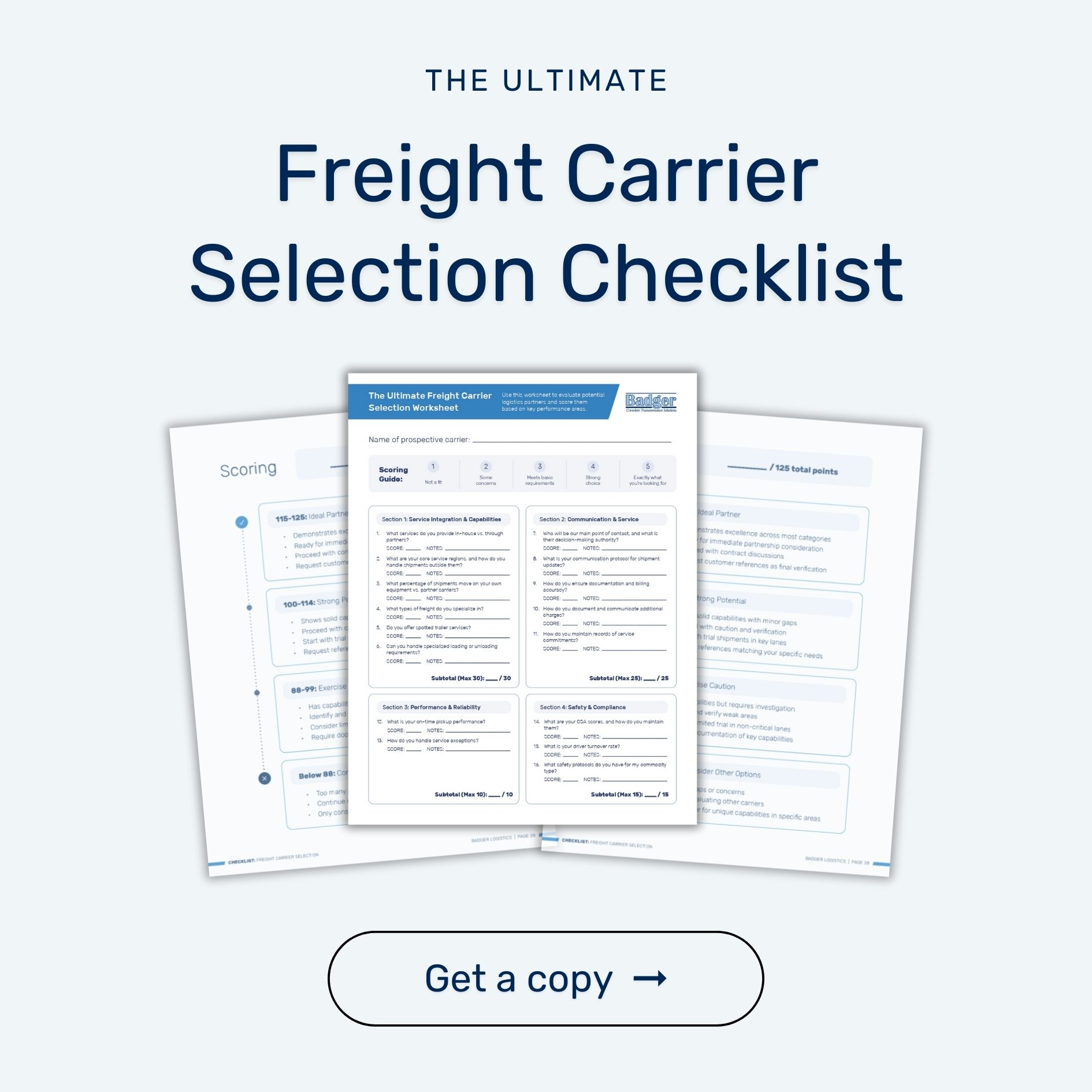As manufacturers face increasing pressure to optimize operations and reduce costs, trailer pooling has emerged as a strategy worth considering.
But is it right for your business? After working with hundreds of manufacturers across Wisconsin and the broader Midwest, I've seen firsthand when trailer pooling delivers exceptional value — and when it doesn't.
Let me walk you through a comprehensive analysis to help you determine if trailer pooling makes sense for your manufacturing operation.
What exactly is trailer pooling?
For those new to the concept, trailer pooling is when carriers "spot" or position empty trailers at your facility, allowing you to load them at your convenience. Once loaded, you notify the carrier, who then dispatches a driver to pick up the loaded trailer and often drops another empty one in its place.
It's a simple concept with profound operational implications.
The benefits of trailer pooling for manufacturers
There are a few key advantages here. Let's quickly run through them.
|
The cost equation of trailer pooling
While the operational benefits are clear, trailer pooling isn't free. Here's what to consider on the cost side:
Equipment utilization fees
Carriers invest significantly in their equipment, and making trailers available exclusively for your use comes with costs. Typical charges include:
|
These fees typically range from $25-75 per day, depending on equipment type, market conditions, and your negotiated terms.
Relationship requirements
I'm always candid with manufacturers about this aspect: trailer pooling requires strong carrier relationships and consistent volume. As I explain to potential partners, there is a cost to the carrier to do that — just having that equipment. But if it's a good customer, for sure, we spot trailers. Most carriers require minimum weekly volume commitments before establishing pool programs, as the economics only work with consistent utilization.
Risk allocation
When trailers sit at your facility, questions of liability arise. Who's responsible if a trailer is damaged while on your property? What about theft or vandalism risks? These considerations must be clearly addressed in your agreements.
When trailer pooling delivers the best ROI
Based on our experience serving Wisconsin's manufacturing sector, trailer pooling delivers the greatest return on investment in these scenarios:
|
Implementing trailer pooling successfully
Successful trailer pool programs start with transparent agreements covering:
|
Without clear terms, misaligned expectations can quickly erode the program's value.
You also have to establish communication protocols. Create efficient processes for alerting carriers when trailers are loaded and ready for pickup. At Badger Logistics, we've found that automated notification systems integrated with manufacturing execution systems deliver the best results.
Once you're up and running, monitor key performance indicators like:
- Average dwell time for empty trailers
- Loading completion timeframes
- Detention charges incurred
- Overall pool size efficiency
These metrics help you optimize your program over time and demonstrate ROI to leadership.
Keep in mind that trailer pooling works best with carriers located within 50 miles of your facility. The proximity makes equipment positioning more economical and allows for faster response when adjustments are needed.
For Wisconsin manufacturers, regional asset-based carriers like Badger Express are often well-positioned to provide trailer pooling with greater flexibility than national carriers. Our equipment is based nearby, and we understand local manufacturing needs and seasonal considerations.
The bottom Line
Trailer pooling isn't right for every manufacturer, but for those with consistent volume, limited dock space, or variable production schedules, it can deliver substantial operational benefits that far outweigh the costs.
The key is finding a carrier partner willing to customize a program to your specific needs rather than forcing you into a one-size-fits-all solution.
For manufacturers in Wisconsin and throughout the Midwest, I'm always happy to evaluate whether trailer pooling makes sense for your specific operation. Sometimes the answer is yes, sometimes no – but an honest assessment based on your actual shipping patterns is the only way to know for sure.
Need a Wisconsin 3PL partner? Let's talk
At Badger Logistics, we combine asset-based trucking with extensive brokerage capabilities, warehousing, and maintenance services to provide integrated logistics solutions for Wisconsin shippers. This guide reflects not just my personal experience but the collective wisdom of our team, which brings over a century of combined Wisconsin logistics experience to every shipment we handle.

While freight transportation will always involve challenges, the right approach and partnerships can transform logistics from a constant struggle into a sustainable competitive advantage. I hope this guide helps you navigate Wisconsin's unique shipping environment more effectively.
For specific questions or to discuss your particular freight challenges or to get a competitive quote, feel free to reach out directly or submit the quote request form below. We'll be in touch within one business day.
Asset-based trucking:
- Local, regional, and long-haul FTL services with 53' food-grade dry van trailers (plate trailers offering up to 101.5” inside width, under 10 years old)
- Safe, compliant driver pool with late-model equipment
- Drop trailer services
- Strategically located in southeastern Wisconsin
- McLeod TMS integrated with Samsara for in-cab communication and tracking
- Superior safety scores and dedicated customer service reps ensure smooth freight movement from pickup to delivery
Full-service freight brokerage:
- 12,000+ annual shipments for 500+ customers
- Access to 15,000+ partner carriers
- Full truckload and partial shipments
- Dry van, reefer, flatbed, and intermodal options
- Door-to-door tracking
- Gold Book rated credit score
Integrated warehousing:
- Secure, strategic storage in southeastern Wisconsin
- Food-grade storage (FDA and DATCAP)
- 27 dock doors for efficient access
- 24/7 security monitoring and fire protection
- Flexible scheduling and deliveries
- Consolidation and order fulfillment services
-
Cross docking, kitting, and assembly





